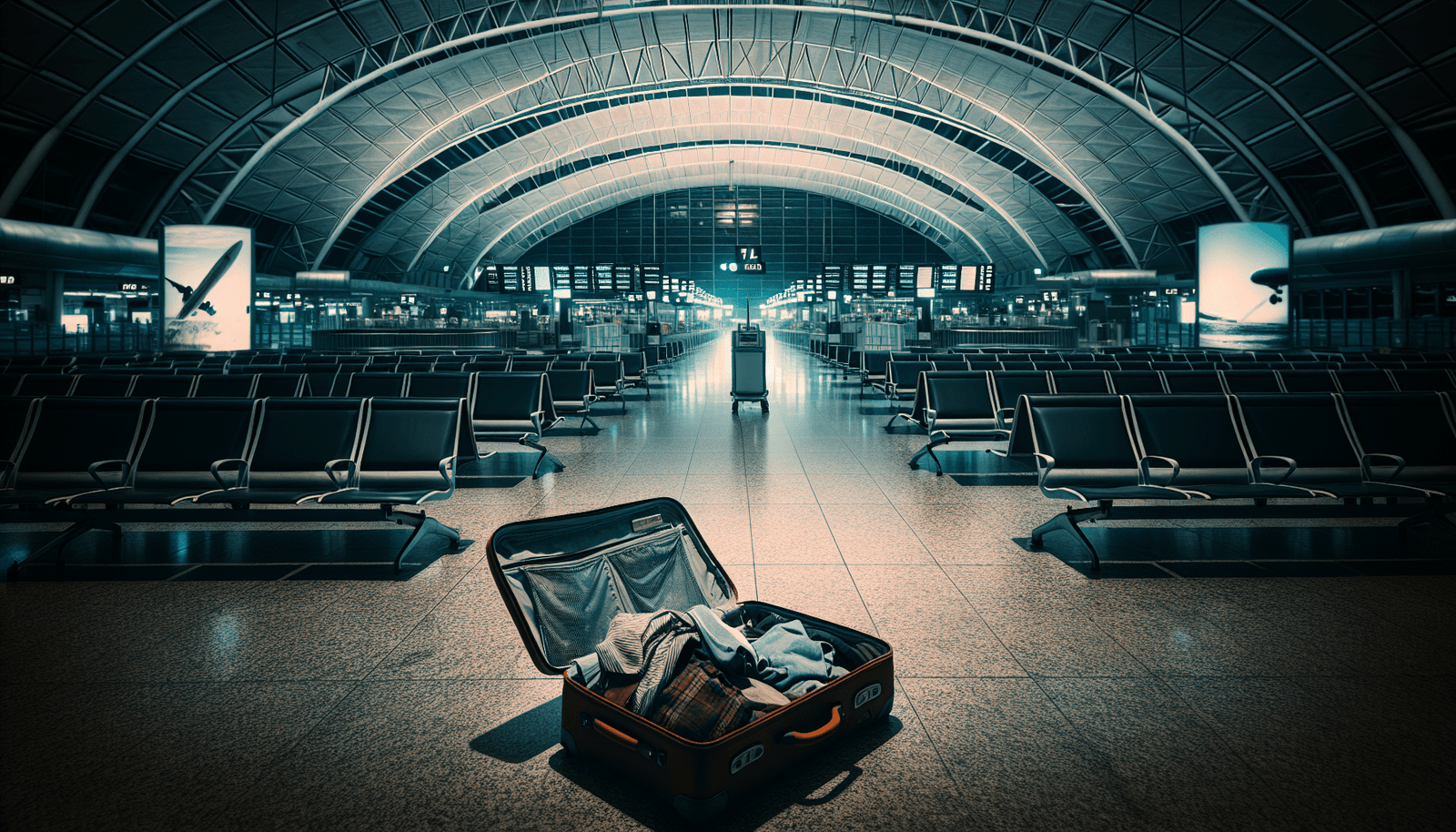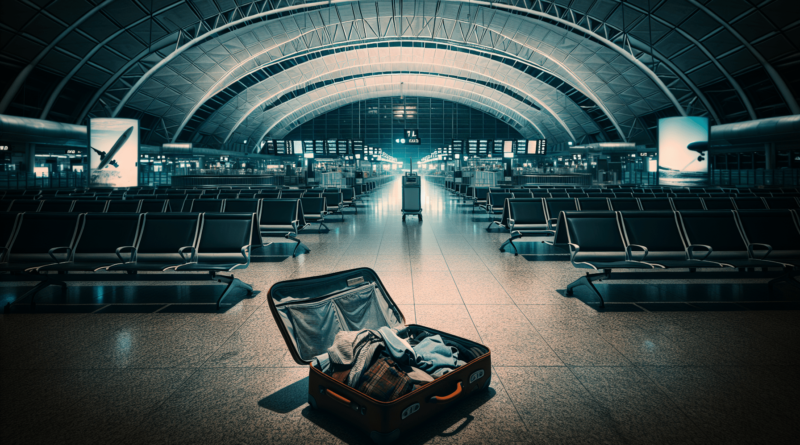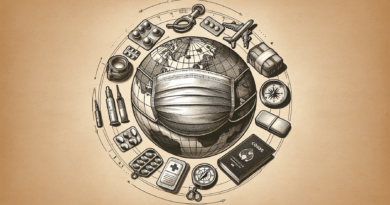UPRISING: The Ignored Problems in the Travel Sector
You’re about to embark on a revealing journey through the less glamorous side of tourism in “UPRISING: The Ignored Problems in the Travel Sector”. This exposé shines a light on the commonly overlooked issues that travelers have to grapple with. Hold on, because you’re going to uncover a different side of the globe-trotting lifestyle, one that features less than perfect experiences, and understanding why they persist in an industry that seems so perfect on the surface. It’s a rising tide, and it’s time to address the deeper issues in the realm of travel.

The Environmental Issue: Over-Tourism
You’ve seen the pictures – throngs of tourists piled atop each other, scrambling for a selfie with a famous landmark. The world is more connected than ever before, and the ease of travel has led to an explosion of tourism. But this doesn’t come without a cost. In many places, the influx of visitors is overwhelming the infrastructure and environment, causing what’s known as over-tourism.
The Impact of Over-Tourism on Natural Habitats
You may have never thought about it, but your footprint – both literal and figurative – can greatly impact the natural habitats of the places you visit. Increased foot traffic can result in soil erosion and habitat destruction, threatening the plants and animals that call these places home. Additionally, the infrastructure needed to accommodate tourists, such as hotels and roads, can further disrupt and fragment habitats.
Pollution Caused by Tourism
From air pollution due to increased travel to local pollution from litter and waste, the tourism industry has a significant environmental footprint. This pollution not only affects the local ecosystem but also contributes to global environmental issues such as climate change. It’s not just physical trash, either. Noise pollution from large crowds and transportation can disturb local wildlife as well.
The Erosion of Local Culture and Traditions due to Over-Tourism
Over-tourism can also have dire cultural impacts. Native traditions and lifestyles can be upended or commodified to cater to tourist expectations, leading to the erosion and potential loss of unique cultural identities and traditions.
Sustainable Tourism: A Potential Solution to Over-Tourism
What’s the answer then? How can you still experience new cultures and lands without harming them? The answer lies in sustainable tourism. This approach focuses on minimizing the negative impacts of tourism while maximizing benefits to local communities. It involves elements like traveling off-season, choosing local and ethical businesses to support, reducing waste, and respecting local customs and habitats.
The Economic Issue: Unfair Labour Practices
Tourism supports millions of jobs worldwide. Yet, the industry is notorious for unfair labour practices.
Poor Wage Conditions of Employees in the Travel Sector
You may not realize it as you’re being served your poolside cocktail, but many employees in the hospitality sector work long hours for minimal pay. The seasonality of tourism also means that job security can be precarious, with workers laid off in the off-peak periods.
Exposure to Health and Safety Risks
Workplace safety is also a significant issue in the tourism sector. Employees are often exposed to various health and safety risks, from handling hazardous cleaning materials to dealing with aggressive guests.
Lack of Job Security in the Travel Industry
Throughout the industry, from flight attendants to hotel workers, job security can be shaky. Many workers are employed on seasonal or temporary contracts, with few benefits and little protection from termination.
Promoting Fair Trade and Ethical Employment in Tourism
Promoting fair trade and ethical employment is crucial for addressing these issues. This includes advocacy for better pay and working conditions, as well as support for initiatives that offer stable employment to local communities.
The Ethics Issue: Human Trafficking in Tourism
Beyond its economic and environmental impacts, tourism is also an ethical issue. In particular, it’s a transit vehicle for human trafficking, a horrendous crime that exploits men, women, and children for various forms of forced labor and sex trafficking.
How Tourism Can Act as a Facilitator for Human Trafficking
In some cases, tourist destinations can become hotspots for human trafficking, where perpetrators exploit weak regulations and high demand for cheap labour and sexual services.
Preventive Measures Being Taken by the Industry and Governments
There are, however, measures being taken to combat this. Travel and hospitality companies are increasingly implementing policies and procedures to identify and report potential signs of human trafficking, and governments are ramping up law enforcement and border control activities.
Role of Travelers in Combating Human Trafficking
As a traveler, you too can help combat human trafficking. Being aware of the signs and reporting suspicious activities can make a considerable difference. Moreover, making conscientious choices like staying at accommodations that have strong anti-trafficking policies can also help.
Travel Companies’ Approach to Counter Human Trafficking
Increasingly, travel companies are recognizing their role in addressing this issue. From staff training to customer awareness campaigns, these companies are taking steps to stop trafficking within their industry.
The Accessibility Issue: Discrimination and Lack of Accessibility
While travel can be a gateway to new experiences and perspectives, not everyone is afforded the same opportunities. Discrimination based on race, gender, sexuality, and disability is a severe issue.
Discrimination Based on Race, Gender, and Sexuality in the Travel Sector
From microaggressions to outright bigotry, discrimination can significantly impact people’s travel experiences. This extends from booking experiences to interactions with hosts, staff, and fellow travelers, creating barriers that can make travel a less than welcoming experience for many.
Lack of Accessibility and Accommodation for Disabled Travelers
For disabled travelers, accessibility is a huge concern. A lack of proper accommodation and infrastructure can make it extremely difficult for them to navigate and enjoy their travel experiences.
Steps Towards Enhancing Accessibility and Inclusivity in Travel
Fortunately, there’s an increasing push for greater inclusivity and accessibility in the travel industry. This includes implementing more robust non-discrimination policies, providing adequate training for staff, and considering accessibility in planning and development of hotels, attractions, and transportation.
The Security Issue: Travel Scams
From phony tour guides to fake souvenirs, travel scams can put a damper on your vacation and hit your wallet hard.
Common Travel Scams
Some scams are widespread and known, such as inflated taxi fares or “free” gifts that turn into pricey purchases. Others may be more localized, exploiting the traveler’s unfamiliarity with local customs and regulations.
The Impact of Scams on Travelers and the Industry
Beyond the immediate financial loss, scams can also create a sense of mistrust and fear among travelers, ultimately damaging the reputation of the tourism industry.
Preventive Measures Against Scams
As the saying goes, “forewarned is forearmed”. Doing your research, understanding common scams in the area you’re traveling to, and using reputable travel services are all ways you can protect yourself.
Role of Travel Companies in Curtailing Scams
Travel companies also have a part to play in preventing scams. They can provide accurate information, warn customers about common scams, and cooperate with local authorities to fight fraudulent activities.
The Trust Issue: Fraudulent Travel Agents and Hotels
Just as scams can prey on tourists, so too can fraudulent travel agents and hotels exploit those trying to plan their journeys.
The Prevalence of Fraud in the Travel Sector
With the growth of online booking, the prevalence of fraud in the travel sector has increased. Some websites promising discounted rates might be illegitimate or carry hidden fees, and dishonest agents can overcharge or completely abscond with your cash.
Adverse Effects on the Reputation of the Industry
These fraudulent practices damage the reputation of the industry and undermine trust among consumers, making them wary and hesitant to engage with travel services in the future.
Ways to Ensure Trustworthiness in Travel Agents and Hotels
Checking reviews, using reputable websites, and being aware of the common signs of fraud can help ensure you’re dealing with legitimate agents and accommodations.
The Health Issue: Medical Tourism
While tourism can often involve pursuit of relaxation or adventure, for some, it’s about seeking medical treatment.
Driving Factors Behind Medical Tourism
Medical tourism is driven by various factors – lower costs, shorter wait times, access to treatments that are not available in one’s home country, or a desire for privacy.
Risks and Concerns Associated with Medical Tourism
There are, however, considerable risks and concerns associated with this practice, including quality of care, patient safety, and ethical issues surrounding healthcare access and resource allocation.
Ethical Questions Raised by Medical Tourism
Medical tourism also raises significant ethical questions – including about exploitation of caregivers and potential contributory effect on inequalities in healthcare among local populations.
Health Safety Standards in the Travel Industry
Nonetheless, if you decide to engage in medical tourism, it’s critical to research and choose providers that meet international health safety standards.
The Digital Issue: Cybersecurity in the Travel Industry
In an increasingly digital world, consumer data is a precious commodity, and the travel industry is no exception.
Risks of Data Breach in the Travel Industry
As more and more travel bookings move online, the risk of data breaches has risen. Sensitive information, such as credit card details and passports, could be exposed if a travel company’s systems are compromised.
The Impact of Data Breach on Customers’ Trust
Such breaches can significantly impact customers’ trust, making them more hesitant to share their personal information and potentially causing long-term damage to a company’s brand.
Measures to Enhance Cybersecurity in the Tourism Sector
Fortunately, many companies are recognizing these risks and implementing robust cybersecurity measures to protect their systems and customer data. These efforts include investing in security technology, training staff on data safety practices, and regularly updating their systems to guard against emerging threats.
The Climate Issue: Natural Disasters and Tourism
From hurricanes to earthquakes, natural disasters can devastate communities – and the tourism industry is often hit hard.
Effects of Natural Disasters on Popular Tourist Destinations
Natural disasters can wreak havoc on popular tourist destinations, causing massive property damage and driving away potential visitors.
Measures to Mitigate Impact on Affected Areas
To mitigate these effects, the travel industry should work in tandem with local governments and communities to develop disaster response plans – including evacuation routes, emergency shelter provisions, and communication strategies.
Travel Industry’s Response to Natural Disasters
In response to such disasters, the travel industry can provide essential support by encouraging responsible tourism, supporting local businesses, and facilitating donations to recovery efforts.
The Innovation Issue: Stagnation in the Travel Industry
Despite the growing global love for travel, some people may feel that the industry has become somewhat complacent.
Perceived Lack of Innovation in Travel Services
There’s a feeling among some that the industry relies too much on tried-and-true methods and isn’t sufficiently prioritizing innovation. While this may not be entirely accurate, the perception itself can result in decreased customer satisfaction and loyalty.
Impact on Consumer Satisfaction
A perceived lack of innovation can also deter would-be travelers, make itinerary planning tedious, and lead to general dissatisfaction with travel experiences.
The Role of Technology in Transforming the Travel Industry
However, technology is starting to shake things up. From virtual reality tours to tailored travel experiences through data analysis, the realm of the possible is expanding. The travel industry needs to keep abreast of these innovations, capitalizing on new technologies to offer great experiences to ever more discerning consumers.




